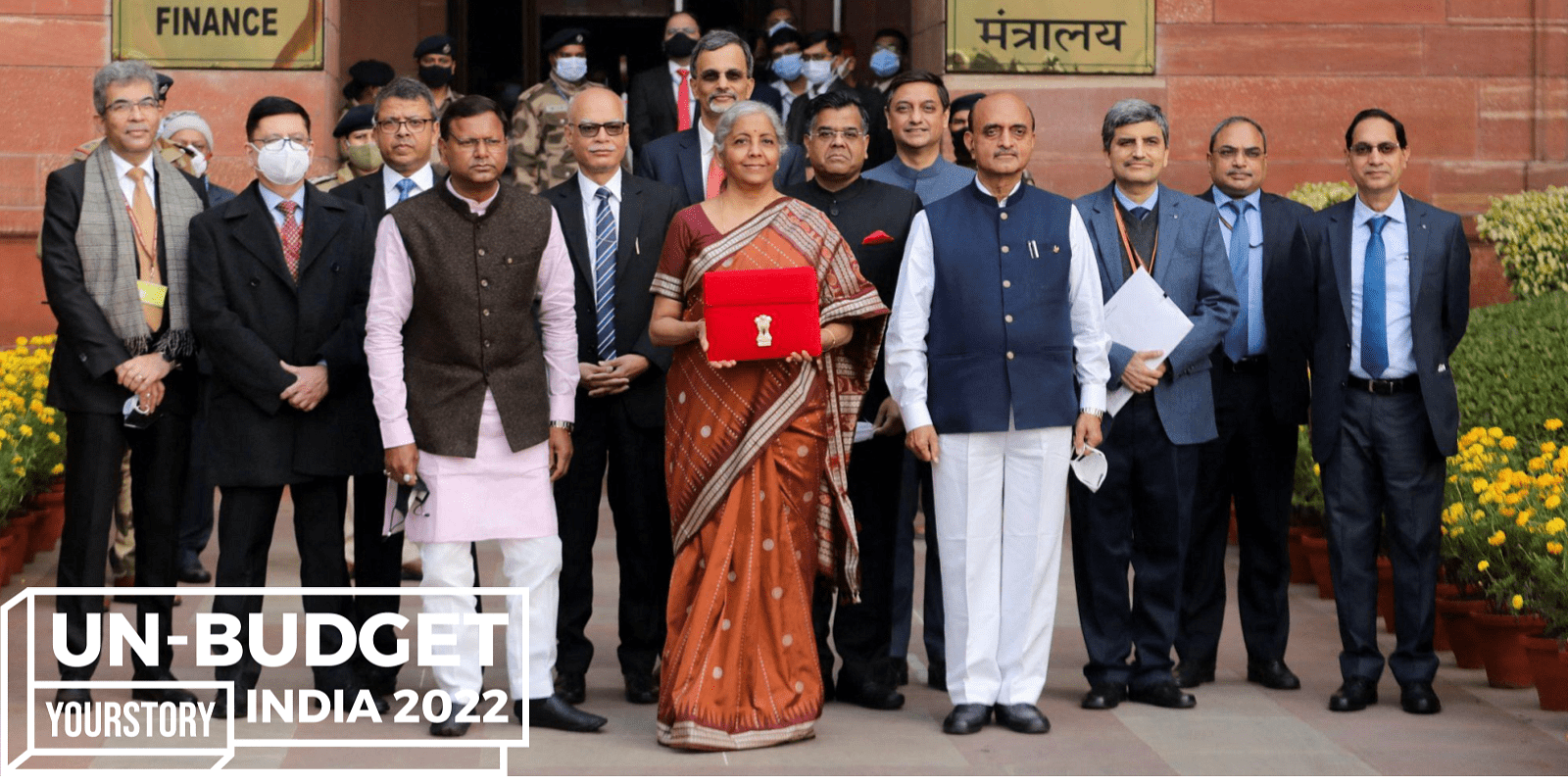Union Budget focused on four pillars of development, guided by the PM Gati Shakti master plan. These pillars are inclusive development, productivity enhancement, energy transition and climate action.
Reading from a Made in India tablet, Sitharaman laid emphasis on the growing startup ecosystem in the country and announced a few tax concessions with a promise of attracting further capital into this ecosystem.
In a roundtable conversation with YourStory investors Sanjay Mehta, Founder, 100X VC; Rahul Garg, Principal, Iron Pillar; Siddarth Pai, Founding Partner, 3one4 Capital, helped decode Budget 2022 and to understand the impact of the announcements on the startup ecosystem.
“This Budget has essentially done two things. First, it has articulated a set of problems that the government wants startups to concentrate on — whether it’s delivering high-tech services to farmers, improving the pharma industry, improving the deeptech industry, or working on our commitments in terms of climate actions, and so on,” said Siddarth.
“Secondly, it has allocated capital resources from the government’s side to ensure that startups have the power to invest and to explore this in greater detail. The model that they have done is that the government no longer has to fund everything through layers of bureaucracy. They’re actually using a blended model either through NABARD when it comes to the agritech financing, either through co-investments with other funds or by using services of SIDBI to start creating a mechanism when it comes to funding,” he added.
Representational Image
The government has announced several plans for the agritech sector including Kisaan drones and chemical-free natural farming.
FM Nirmala Sitharaman announced that the central government will facilitate a fund with blended capital under the co-investment model through the National Bank for Agriculture and Rural Development (NABARD). NABARD is an apex regulatory body under the Ministry of Finance to regulate regional rural banks and apex cooperative banks in India.
The fund will be used to finance startups for agriculture and rural enterprises, relevant to the farm produce value chain. This will include startups involved in supporting Farmers Producers Organisation, providing them with machinery and technology on a rental basis.
“The government’s push to create thematic investment funds and to invite private fund managers to invest in these sectors provides a lot of impetus to these sectors,” said Rahul. “Globally, there has been a lot of talk about clean energy, climate and deep tech but in the Indian VC ecosystem, we have not invested a lot behind these technologies. This year the government’s commitment towards sustainability, clean tech and digital inclusion has strengthened quite a bit.”
In the startup ecosystem, the government has also extended support to venture capital in the form of slashing the maximum surcharge on Long Term Capital Gains (LTCG) to 15 percent. This brings down the effective tax rate to 23.92 percent from the earlier level of 28.50 percent. The tax incentive for startups was extended by another year, while also proposing the creation of segment-focused funds.
“Unfortunately, when we think about startups, we think of VC-backed startups. So, an extension of the tax period from three years to four years does not seem like a big thing but there are small businesses in India that are startups that make profits from year one or year two and the extension of that grace period by another year is quite helpful,” Rahul pointed out.
Indirect legitimisation of cryptocurrency
Budget 2022 also announced that any income from virtual digital assets will be taxed at 30 percent. Although the minister did not directly refer to cryptocurrencies as virtual digital assets, it is likely that crypto tokens will be taxed at a flat rate of 30 percent.
She added there would be no deduction possible in any expenditure or allowance while computing income from transfer of digital assets, except the cost of acquisition.
“This announcement was very symbolic, because it is to say that we are moving towards regulation and not towards a ban,” said Rahul.
“If you look at the next wave of startups which are coming through India are all based in blockchain and Web 3. A lot of them are not only building infrastructure, but they are building consumer-facing applications that will give tokens in the hands of lots of users. Holding these tokens will be a very important lever for the adoption and growth of these startups. If the government imposes 30 percent tax on crypto, it indirectly legitimises the blockchain economy. It gives a green light to the crypto entrepreneurs,” he explained.
The three investors agreed that they expect to see a lot more activity in the crypto space in the next 15-18 months owing to the government’s support. They also added that the sectors that are included in the production-linked incentive scheme will witness more activities from startups and investors alike.
“We do not have too many hardware or devices startups in India, and neither are the VCs looking at it. The game changer is going to be the PLI-driven 14 sectors including IT and hardware manufacturing,” said Sanjay, “We have been great at tech, consumer brands and D2C, but VCs have not seen any success with manufacturing. With PLI schemes happening across, we should see that pick up rapidly.”










